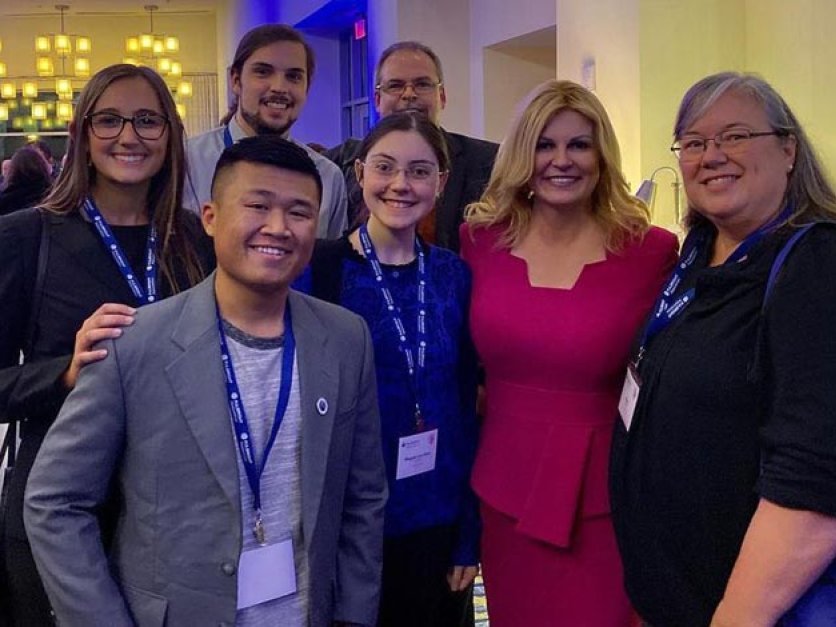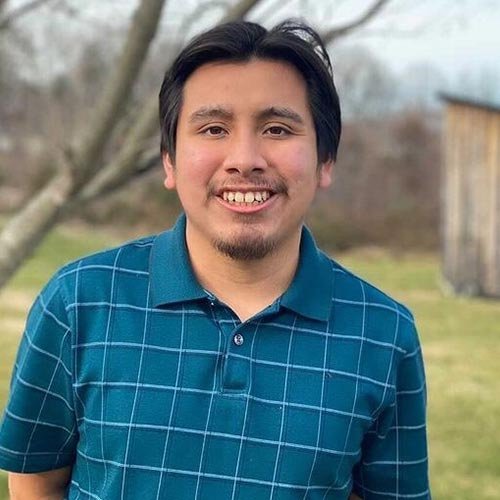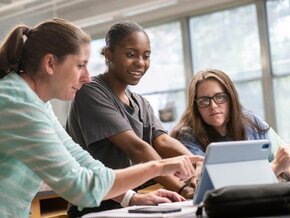Business Scholars
Business Scholars will have access to exceptional leadership training, networking opportunities and authentic and relevant field work associated with their desired career path. Scholars have traveled the world to learn from business professionals and seek to understand how they can use their leadership skills responsibly and ethically to make a positive difference in the world.

Scholars visit Washington D.C. to learn more about leadership. They met Kolinda Grabar-Kitarović, president of Croatia, and learned about her perspective on leadership and women's empowerment.
Program Overview
Scholars arrive in a cohort that soon becomes their network and peers. Through this network they will learn how to engage with others who have different goals and desires, establish and implement plans that meet the goals of their community wide projects and understand how to lead and communicate effectively.
Benefits
Scholars program benefits include:
- Access to the Broyhill Leadership Institute
- Participate in enrichment seminars and experiences
- Encouragement to study aboard
- Personalized advising and mentorship provided by the program director
- Eligible to participate in the Fritz Honors College
- Introductions to various alumni and community members
- Opportunity to network with community members beginning their first year

Being involved with the Broyhill Institute for Leadership enhanced my understanding of an effective leader and how we are all leaders in various ways.

